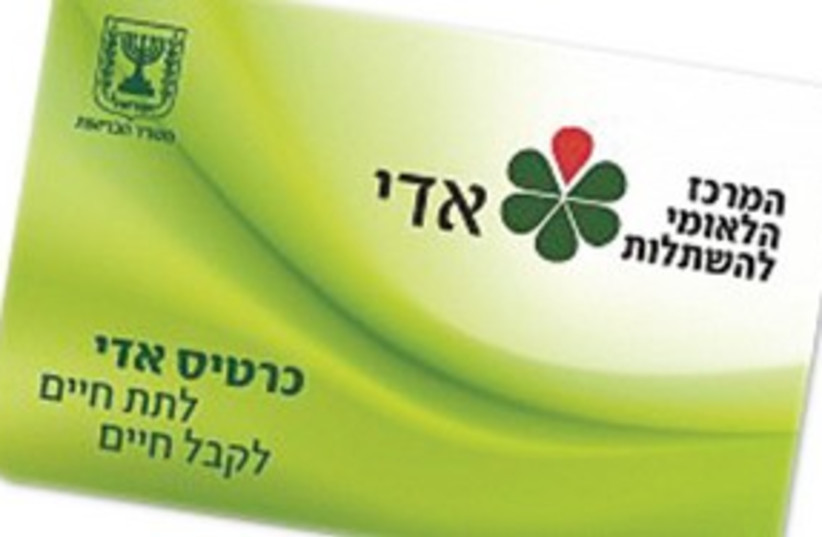The number of organ transplants from both live and deceased donors increased significantly to an all-time record in 2022, according to a summary of the year’s activities from the Health Ministry’s Israel Transplant.
The increase involved all types of transplants and was due partially to the number of people waiting for a transplant on the national list. The reason for this is the increase in the number of new patients registered for organ transplantation to 778, compared to 746 in the previous year.
How many transplants in total?
A total of 656 transplants were carried out, with 32 heart transplants compared to 24 in 2021. A total of 330 patients were transplanted from deceased donors and 326 from living donors (kidney and liver lobe).
There was an increase in the number of families who agreed to donate organs of their loved ones –102 compared to 98 in the previous year – but 77 patients died while waiting for an organ compared to 63 in 2021. There has been a significant increase in the number of kidney donors (live donation) within the family.
One hundred kidney patients received organs this year thanks to the priority in the queue given to them by their early signature on the ADI potential donor card.

Kidney transplants – the same number in 2021 and 2022 - 145
Liver transplants – increase from 87 to 92
Heart transplants - up from 24 to 32 (an all-time high)
Lung transplants – rose from 55 to 61
Cornea tissue transplants: 759.
Transplants from living donors = 319 kidney transplants from living donors. There was an increase in the number of kidney donors in the family from 58 in 2021 to 133 in 2022 and kidney transplants from donors with no family connection to the recipient (“altruistic” donors) performed – 242 in 2021 and 186 in 2022.
There were seven liver-lobe transplants, of which six were family donors and one was unrelated.
Cooperation with foreign countries
Cross-matched kidney transplants – between family members for whom a match was not found and altruistic donors who registered directly for the cross-match program through the transplant center. 47 crosses were made between pairs, four crosses among three pairs, one cross among four pairs, and another cross among three pairs with one pair from Austria. This was the first crossover carried out with Austria as part of the cooperation with foreign countries transplants from living donors.
“This year we increased our cooperation with foreign countries, in the exchange of kidneys from living donors when the Czech Republic and the Emirates were joined by Austria."
Prof. Rafael Beyar
Prof. Rafael Beyar, chairman of Israel Transplant’s Steering Committee and a leading cardiologist, commented: “This year we increased our cooperation with foreign countries, in the exchange of kidneys from living donors when the Czech Republic and the Emirates were joined by Austria. The great frustration stems mainly from the annual increase in the number of transplants, which does nothing to reduce the waiting list. Every year we manage to increase the number of transplants, and despite this many more patients need a transplant. This year, new equipment was introduced, for preserving the liver and heart, through the infusion of solutions with the help of which it will be possible to increase the inventory of organs. This is very expensive equipment, but we will not give up any opportunity to save a life.”
Dr. Tamar Ashkenazi, director of Israel Transplant, added: “This year, there was a slight increase in the number of transplants, as every effort was made to convince the families of the deceased to donate. There is no doubt about the decisive effect of the ADI card on the willingness to donate. The hospital transplant coordinators devote themselves to supporting and assisting the families before and when they receive the bitter news. and subsequently, they promote the decision to donate organs.
